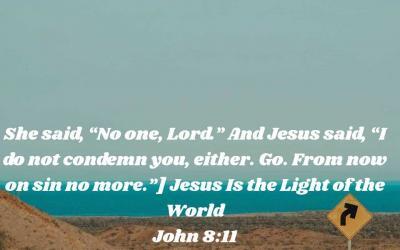Introduction
Pride is a subtle but powerful force that can blind us to our limitations and lead us into destruction. The Bible repeatedly warns against pride, emphasizing its devastating consequences. Just as a towering tree is vulnerable to the storm, a proud heart is susceptible to God’s judgment. Obadiah, one of the minor prophets, delivers a timeless message about the dangers of pride, using Edom as an example.
Illustration: Imagine a man who climbs a mountain, reveling in his own skill and strength, only to find himself stranded with no way down. His pride blinded him to the risks, leading to his peril. Similarly, pride often leads us to heights of self-reliance, only to leave us vulnerable to a fall.
Background and Context
- Book: Obadiah is the shortest book in the Old Testament, containing just 21 verses.
- Timeline: Written between 850–840 BC during the reign of King Jehoram of Judah.
- Audience: The nation of Edom, descendants of Esau, Jacob’s brother.
- Theme: The judgment of Edom and the ultimate triumph of God’s justice.
Edom’s pride stemmed from its geographical security, wealth, and hostility toward Judah. Despite their kinship with Israel, the Edomites rejoiced at Judah’s downfall and refused to assist them. This arrogance and betrayal led to God’s judgment.
Key Points
1. Pride Breeds False Security
- Edom’s Confidence: “The arrogance of your heart has deceived you… who say in your heart, ‘Who will bring me down to the ground?’” (Obadiah 1:3).
- Edom trusted in their fortified cities and rugged terrain, believing they were invincible.
- Lesson: Pride convinces us that we are self-sufficient, but security apart from God is a delusion.
Illustration: A homeowner installs the latest security system but neglects basic fire safety, only to lose everything in a blaze. Pride blinds us to vulnerabilities.
2. Pride Leads to Betrayal and Harm to Others
- Edom’s Betrayal: Edom not only refused to help Judah during its distress but also exploited their suffering.
- “Do not gloat over your brother’s day of misfortune… Do not loot their wealth in the day of their disaster” (Obadiah 1:12-13).
- Lesson: Pride fosters a competitive spirit, driving us to take advantage of others instead of showing compassion.
Illustration: A colleague secretly celebrates a coworker’s failure, forgetting that their own turn may come.
3. Pride Invites God’s Judgment
- God’s Warning: “As you have done, it will be done to you. Your dealings will return on your own head” (Obadiah 1:15).
- Edom’s actions foreshadow the principle of divine justice: we reap what we sow.
- Lesson: Pride sets us against God, and He resists the proud (James 4:6).
Illustration: A farmer who sows thorny weeds instead of wheat should not be surprised when his harvest is unfruitful. Our actions yield consequences.
Practical Application
- Recognize Pride in Your Life: Regularly examine your heart for areas of self-reliance or superiority over others.
- Humble Yourself Before God: Trust in God’s sovereignty rather than your own strength (Proverbs 3:5-6).
- Show Compassion to Others: Choose empathy over gloating when others struggle. Extend help where you can.
- Seek God’s Justice, Not Your Own: Trust God to right wrongs in His time instead of taking matters into your own hands.
Key Verse
Obadiah 1:15: “For the day of the Lord draws near on all the nations. As you have done, it will be done to you; your dealings will return on your own head.”
This verse reminds us that God’s justice is inevitable and impartial. Our prideful actions will come back to us, emphasizing the need for humility and righteousness.
Conclusion
Pride led Edom to destruction, but its message transcends time: pride leads to a fall, both individually and collectively. As followers of Christ, we are called to walk humbly before God, trusting Him to bring justice and mercy. Let us examine our hearts, seek humility, and rely on God for true security and peace.





0 Comments